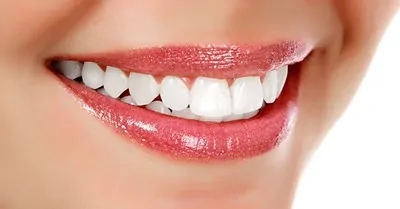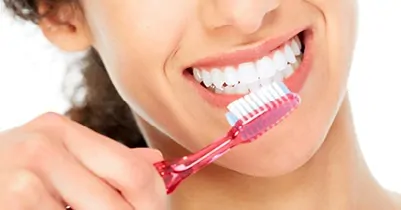
Why Proper Denture Care is Important
Just like caring for your natural teeth, caring for your dentures is important for overall oral health. When not cleaned or cared for properly, your dentures can become ill-fitting and result in serious oral health concerns. Most often, improper denture care leads to a buildup of plaque bacteria along the gum line. Too much of this dangerous bacteria may cause bad breath, cavities, more tooth loss, and even gum disease.
Follow These Tips
Proper denture care is important to fight off dangerous oral diseases and to ensure a proper fit for as long as possible. Follow these tips to extend the life of your dentures.
- Rinse. Rinsing your dentures with warm water after every meal is ideal. Rinsing helps remove any food particles that may be lingering around on your denture causing buildup. If foodstuffs are left there too long, they can start to decompose and lead to smelly breath or other oral health concerns.
- Brush. Just like natural teeth, dentures should be brushed daily. Use a soft-bristled brush or a denture brush with a denture-safe paste to gently clean the dentures, ridding them of extra food particles and bacteria. Just like rinsing, brushing goes a long way in keeping dentures, and breath, fresh.
- Soak. Dentures should be soaked every night in a closed container of denture solution or water. Soaking helps loosen anything that may be hanging around and can even help keep them stain-free.
- Visit. Make sure to keep up with recommended visits to your dentist in Asheboro to ensure your dentures are fitting properly and there are no concerns.
If you have questions about proper care for your dentures, or think they may be a solution for you, give our dental office in Asheboro a call. We’ll be more than happy to answer any questions you may have and ensure you’re on the right track towards optimal oral health.
Welcoming patients from Asheboro, Randolph County, and Randleman.

 At
At  Your teeth are at risk all the time–even while you sleep! Here at
Your teeth are at risk all the time–even while you sleep! Here at  At
At  Flossing. It’s one of America’s least favorite necessities. In fact, a study from the American Academy of Periodontology found that more than a third of people would rather do a sink load full of dishes, scrub the toilet, wait in a super long checkout line, or sit in standstill traffic than floss. What’s the deal? Why is flossing so despised?
Flossing. It’s one of America’s least favorite necessities. In fact, a study from the American Academy of Periodontology found that more than a third of people would rather do a sink load full of dishes, scrub the toilet, wait in a super long checkout line, or sit in standstill traffic than floss. What’s the deal? Why is flossing so despised? Bad breath affects everyone at least once in a lifetime and it’s completely normal. But it doesn’t make it any less embarrassing or worrisome. At
Bad breath affects everyone at least once in a lifetime and it’s completely normal. But it doesn’t make it any less embarrassing or worrisome. At  As we get older, our bodies go through a lot of changes. Some of them don’t directly affect our health, but one in particular may. We’re talking about osteoporosis. At our dental office in Asheboro, many of our patients are over the age of 50 and, therefore, at increased risk for osteoporosis. Believe it or not, seeing us regularly is a great way to first spot signs of osteoporosis.
As we get older, our bodies go through a lot of changes. Some of them don’t directly affect our health, but one in particular may. We’re talking about osteoporosis. At our dental office in Asheboro, many of our patients are over the age of 50 and, therefore, at increased risk for osteoporosis. Believe it or not, seeing us regularly is a great way to first spot signs of osteoporosis. As with any health care, dentistry comes with its fair share of confusing recommendations, nonsensical terminology, and overall general questions about the whats, whys, and hows. At our dental office in Asheboro, we strive to ensure all our patients have their questions answered completely and accurately, so we’ve dedicated this blog to some of the more common questions we get asked.
As with any health care, dentistry comes with its fair share of confusing recommendations, nonsensical terminology, and overall general questions about the whats, whys, and hows. At our dental office in Asheboro, we strive to ensure all our patients have their questions answered completely and accurately, so we’ve dedicated this blog to some of the more common questions we get asked. How’s your relationship with your toothbrush? Is it working for you? Is it getting the job done well? At our dental office in Asheboro, we hate to be the bearer of bad news, but your toothbrush relationship should never be long-term. Is it time you moved on to something better?
How’s your relationship with your toothbrush? Is it working for you? Is it getting the job done well? At our dental office in Asheboro, we hate to be the bearer of bad news, but your toothbrush relationship should never be long-term. Is it time you moved on to something better? Any emergency is serious and should be treated as such. Dental emergencies, which include any injury to the teeth, gums, or mouth, are no exception. At our Asheboro dental office, we understand that a dental emergency can be scary, so we’re here to help give you a few tips on how to handle several types.
Any emergency is serious and should be treated as such. Dental emergencies, which include any injury to the teeth, gums, or mouth, are no exception. At our Asheboro dental office, we understand that a dental emergency can be scary, so we’re here to help give you a few tips on how to handle several types.




